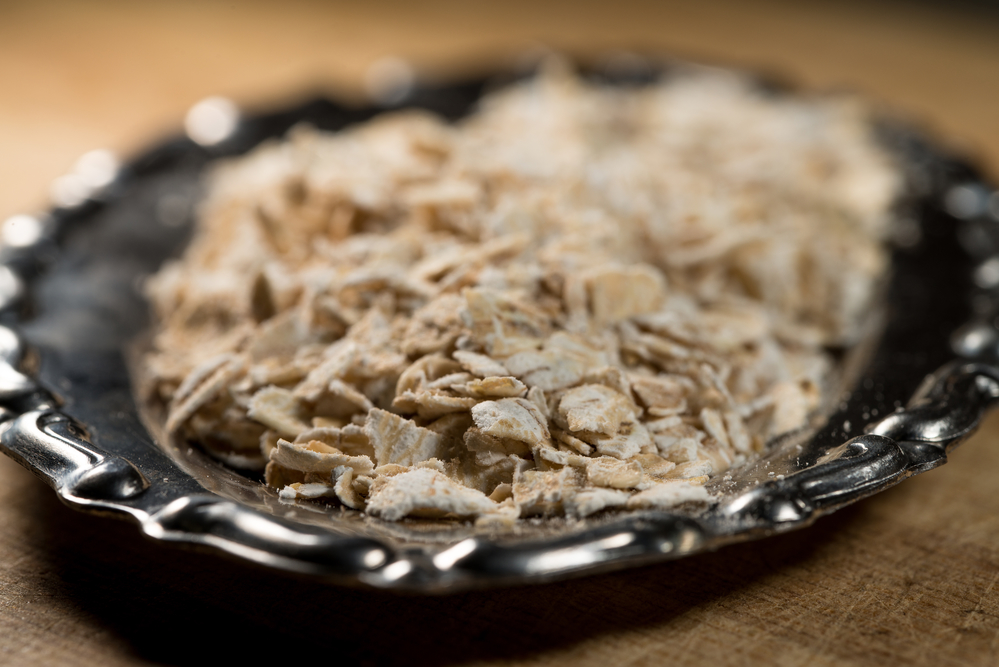
by Dr. Oler, ND | Aug 23, 2016 | Areas of Weight Loss Resistance, Food Allergies, Gut Dysbiosis, Natural Weight Loss, Weight Loss
Food sensitivities can create many undesirable symptoms in the body, such as tissue swelling (hands, ankles and/or feet), bloating (abdomen, puffy face or double chin), watery eyes, running nose (especially right after eating), nasal congestion, heartburn, headaches, achy or stiff joints and cravings for certain types of foods. These symptoms oftentimes don’t appear right away, making it more difficult for the sufferer to correlate a certain food with a reaction.
(more…)

by Dr. Oler, ND | Aug 16, 2016 | Areas of Weight Loss Resistance, Eating Naturally, Way of Life, Weight Loss
Excess body fat is a key cause of chronic inflammation in the body. There are also several other common causes of inflammation that typically afflict people that are overweight, and it won’t surprise you that many of them stem from the underlying metabolic imbalances we have been discussing throughout this course. These include sleep deprivation, excessive or chronic stress, insulin resistance, gut imbalances and toxic burden. However, the largest (non‐fat) contributors to systemic inflammation in the body are the things most people put into their mouths every day.
(more…)

by Dr. Oler, ND | Aug 15, 2016 | Amino Acid Therapy, Health Partner News, Neurotransmitter, Neurotransmitter Function, Neurotransmitter Imbalances, Underlying Metabolic Imbalances, Weight Loss
Neurotransmitters are a class of chemical messengers in the body that help regulate many body functions. Most people have heard of several common neurotransmitters, including serotonin, dopamine, norepinephrine and epinephrine (also known as adrenaline) and are familiar with some of their functions in regards to mood and sleep. What many people do not know is that your neurotransmitter balance may dramatically affect your ability to lose and maintain your weight. Read more…


by Dr. Oler, ND | Aug 9, 2016 | Natural Health Products, Natural Pain Relief, Natural Remedies, Natural Weight Loss, Naturopathic Health
Naturopathy is a philosophy of disease and healing built up as a result of many years of client investigation and research into the nature and cause of disease.
It is based upon a conception that realizes that disease is something which arises in the system solely as a result of the body’s attempts to rid itself of obstacles to its proper functioning. Disease is regarded, therefore, as being something directly connected with the life and habits of the individual concerned. It is the direct outcome of these same ways and habits of living, and not something apart from, or foreign to them.
The power to prevent and reverse disease is taken to reside always and only within the body and spirit of the client and will manifest itself as soon as the practices which have hampered its activity in the past and obscured its presence have been rectified. In other words, the body and soul of the client possesses the power to heal itself once the obstacles to health have been removed.
Seven Core Beliefs of Naturopathy
As a naturopathic center and online source of information on naturopathic medicine, there are seven core beliefs that guide our recommendations:
Core Belief #1: Do No Harm
The first core belief is to do no harm. As naturopathic practitioners, we are concerned with the health and healing of our guests first and foremost. Therefore, we must not and we do not base our decisions or implement therapies that lead to a deterioration of health or weaken the body’s ability to heal itself over time. Furthermore, we will not employ a therapy that brings about short-term symptom suppression at the expense of long-term health and healing. Our job is to remove the obstacles to health and support the body so that it is in tune with nature’s laws. This brings us to our second belief, and that is the healing power of nature or Vis medicatrix naturae.
Core Belief #2: Believe in the healing power of nature
This is a profound belief that the body possesses the ability to heal itself if given the proper opportunity. The body is believed to have an innate intelligence that is always striving for health. It maintains that the morbific agent, such as bacteria does not directly cause the symptoms accompanying disease, but rather, that the symptoms are the result of the body’s intrinsic response or reaction to the agent and the body’s attempt to defend and heal itself. Symptoms, then, are part of a constructive phenomenon that is the best choice the body can make given the circumstances. In this construct, the role of the doctor is to aid the body in its efforts, not to take over the functions of the body. To do this, one must identify and address the causes of the diseased state, which brings us to our third core belief.
Core Belief #3: Identify and address the cause
Fundamental to our philosophy is that if we identify and adequately address the root causes of disease or dysfunction, thereby allowing the body to heal, the body will do so. To do this, we use several assessment techniques that allow us to determine which systems within the body are working properly and which ones indicate signs of dysfunction. Oftentimes, a breakdown in one particular system in the body can manifest as different clinical responses in different people. Therefore, we are not so much concerned with the name or label placed on a diseased state, as we are with the underlying root causes the labeled disease connotes. Once we determine and begin to address these root causes, our job is to teach the client on how to cleanse the body of toxins, rebuild the body using food and therapy and maintain health once all the systems in the body are working optimally. This is the fourth principle – the doctor as a teacher.
Core Belief #4: See the doctor as a teacher
The word ‘doctor’ is derived from the Latin word Docere, which means “teacher”. We believe therefore, that a fundamental aspect of our job, indeed the most important aspect, is to educate our clients about the natural laws governing health and how they can obtain and maintain a state of optimal wellness. We teach our guests how and what to eat for their particular condition, instruct them in the use of various forms of hydrotherapy, physiotherapy, relaxation and emotional release, among others, so that they can take control of there health care by taking a proactive role in it. We do NOT want our guests to be dependent on us for care; we want them to know what they must do and we motivate them to take the steps necessary to obtain and maintain their health. This brings us to the fifth belief and that is that we must address the whole person.
Core Belief #5: Address the whole person – body, mind and spirit
It is becoming a familiar concept that our physical health is dependent on our mental, emotional or spiritual state of being. There is no refuting the fact that if we are emotionally upset for instance, our physical health suffers. Likewise, it is well documented that a high degree of stress over time leads to a deterioration of health. As we are trying to locate ALL the underlying root causes of dysfunction, we must address not only the physical factors, but also the mental, emotional and spiritual aspects that are affecting our client’s health. Truly optimal health can only be achieved if we heal each of these aspects AND have balance between them. Therefore, we address each of these aspects from the first day a client walks through our doors and we incorporate different therapies to address these areas as the client progresses toward greater health and wellbeing.
Core Belief #6: Use first the therapy that requires the least force
The sixth core belief is that we begin with the therapy that uses the least amount of force for the greatest benefit. Health is a process of gradual cleansing, rebuilding and repairing the body. We cannot circumvent this process in the long run by using heroic methods of healing when they are not called for. We always start with the simplest and least invasive approach and use more complex and detailed approaches only when necessary. The simplest form of therapy is prevention, and this is the seventh and final fundamental belief in naturopathy.
Core Belief #7: Practice prevention first and work towards that as the end goal
If we can help our guests from becoming ill and manifesting disease in the first place, we have done our job adequately. Prevention is the perfect embodiment of the first six core beliefs – we do no harm if our guests maintain vibrant health. The body, through its innate intelligence, does what it needs to in order to thrive in and adapt to the wide range of environments and stresses placed upon it. As we have taught our guests what they need to obtain and maintain optimal health, they know what the core things are they need to do and they have the knowledge and the tools to follow through and experience the benefits of following nature’s laws. This includes addressing all aspects in their lives – body, mind and spirit – and they can address these areas with the least amount of discomfort and the greatest reward.
At Natural Solutions for a Healthy You, our job is to promote health and well being through the scientific application of natural healing methods with the ultimate goal of optimal health through education and the promotion of a healthy lifestyle.
Prevention is the end goal, and one that we can help our guests achieve for themselves and their loved ones.

by Dr. Oler, ND | Aug 4, 2016 | Areas of Weight Loss Resistance, Digestive Support, insulin resistance, Weight Loss
The average American consumes 12 grams of fiber per day. In 1850 the average consumption was 25‐30 grams, which is the same number that the American Cancer Institute recommends today. (Lipski 58) As the numbers illustrate most we are falling short of reaching optimal levels.
Before addressing how to increase your fiber intake, I want to explain the two different types of fiber and what roles they play in the body. Essentially, dietary fiber is the non‐digestible component of carbohydrates naturally found in plant food and is further broken down in the following two categories:
Soluble Fiber
Soluble Fiber is made up of polysaccharides (carbohydrates that contain three or more molecules of simple carbohydrates), and it dissolves in water. Soluble fiber has the ability to bind with fatty acids and also prolong stomach emptying time so sugar can be released more slowly. This type of fiber helps to regulate blood sugar and also aids in lowering the total and LDL cholesterol counts. Soluble fibers are often viscous (gel‐like consistency). Some examples are: psyllium husks, flax seed, glucomannan, oat bran, dried beans and peas, fruits (apples, pears, citrus fruits, berries, apricots, prunes), and vegetables (carrots, cabbage, Brussels sprouts, sweet potatoes).
Insoluble Fiber
Insoluble Fiber is mainly made up of plant cell walls, and it cannot be dissolved in water. Insoluble fibers move bulk through the intestines and also help to control and balance the pH of the bowel. The bulking action of insoluble fiber aids in alleviating constipation and also helps to sweep toxins out of the body. Insoluble fibers can be found in the following foods: vegetables, such as green beans and dark leafy greens, fruit skins and root vegetable skins, whole wheat products, corn bran, nuts and seeds.
Here are some ways to add more fiber to your diet. (Stick as close to nature as possible):
- Replace white flour products with whole grains.
- Consume at least 5 servings of vegetable and fruits daily.
- Switch from white rice to brown rice.
- Add beans to some of your meals.
- Take supplements, such as psyllium, flax seed or glucomannan.
Fiber even helps a person feel full. It can also aid in weight loss by stimulating the increased production of CCK (the satiety neurotransmitter) and reducing ghrelin (the hunger hormone).

by Dr. Oler, ND | Aug 2, 2016 | insulin resistance, Natural Weight Loss, Nutrition, Underlying Metabolic Imbalances, Weight Loss
Did you know, one teaspoon of sugar has the ability to suppress immune function for 5 hours? There are 10‐12 teaspoons of sugar in the average cola.
The fact that most people’s diets are extremely deficient in many nutrients due to the consumption of refined, fatty foods and the exclusion of fruits, vegetables and whole grains means that this information is mind blowing to most people. (more…)

by Dr. Oler, ND | Jul 26, 2016 | Fatigue, Insomnia, Sleep and Weight Loss |
Research has shown that several supplements can help you get to sleep easier and stay asleep longer. Before taking any supplements, be sure and check with your doctor, especially if you are taking any prescription or over‐the‐counter medications.
Recent research has uncovered an incredible breakthrough that can help restore a normal sleep cycle. It turns out that nutrients found in cow’s milk called bioactive peptides (which are chains of amino acids) exert a sedative effect on the brain and induce sustained sleep patterns. These bioactive milk peptides have been shown to act on the brain’s GABA‐A (gamma amino butyric acid) receptors, the same mechanism of action that makes the class of sedatives known as benzodiazepines (i.e., alprazolam (Xanax), clonazepam (Klonopin), diazepam (Valium) and lorazepam (Ativan)) so effective. The advantage of milk peptides, of course, is that they induce relaxation and sleep without the side effects associated with long‐term benzodiazepine use.
In fact, published studies have shown these bioactive milk peptides effectively combat the stress response, blunt elevations of cortisol, promote sustained restful sleep patterns, support daytime cognition, and relieve anxiety. They are used widely in Europe under the trade name Lactium®; typical doses are 75‐150 mg about 30‐60 minutes before bedtime. We recommend a product called Benesom that combines this bioactive milk peptide along with melatonin and passionflower extract to promote a restful, relaxed state and relieve occasional sleeplessness; take 1‐3 tablets 30 minutes before bedtime.
Melatonin supplementation has been shown to help assist in obtaining a restorative night’s sleep while also helping to promote a healthy weight.
Hops, passion flower, skullcap, lemon balm and valerian root, taken in capsule or extract form, are all good for helping to overcome sleeplessness. It is best not to rely on one herb on a regular basis, but to rotate among several. Take these herbs before bedtime.
Catnip and chamomile have mild sedative properties. These herbs are safe even for children if taken in tea form. For adults, drinking chamomile teas several times throughout the day helps to calm and tone the nervous system, promoting restful sleep.
Taking a B complex with breakfast and lunch can help your body make and use the neurotransmitters that it needs to help you sleep at night. This is especially helpful for those that call fall asleep, but wake up with the inability to fall back asleep again.
Amino acids – if you suffer from insomnia, you may have a neurotransmitter imbalance that is preventing you from achieving good quality sleep. Consider speaking with a specialist to get started on amino acid therapy as soon as possible.


by Dr. Oler, ND | Jul 20, 2016 | Amino Acid Therapy, Areas of Weight Loss Resistance, Health Partner News, Neurotransmitter Imbalances, Underlying Metabolic Imbalances, Weight Loss
Neurotransmitters are a class of chemical messengers in the body that help regulate many body functions. Most people have heard of several common neurotransmitters, including serotonin, dopamine, norepinephrine and epinephrine (also known as adrenaline) and are familiar with some of their functions in regards to mood and sleep. What many people do not know is that your neurotransmitter balance may dramatically affect your ability to lose and maintain your weight. Read more…


by Dr. Oler, ND | Jul 14, 2016 | Cleansing, Digestive Support, Nutrition
Detoxification is a highly nutrient dense process. Not to be confused with intermittent fasting, detoxification requires the addition of whole foods, rich in vitamins and minerals to help repair your system while getting rid of toxins.
(more…)

by Dr. Oler, ND | Jul 13, 2016 | Amino Acid Therapy, Health Partner News, Migraine
Anyone that has had – or that has had to witness someone having – a migraine can attest to the outright agony experienced. Many people find themselves completely incapacitated during a migraine attack and need to lock themselves away until it passes. Most people have 1-3 migraines/month, but we routinely see people that experience 3-5 migraines every WEEK (if you can imagine that); an unfortunate few have them every day. Read more…














